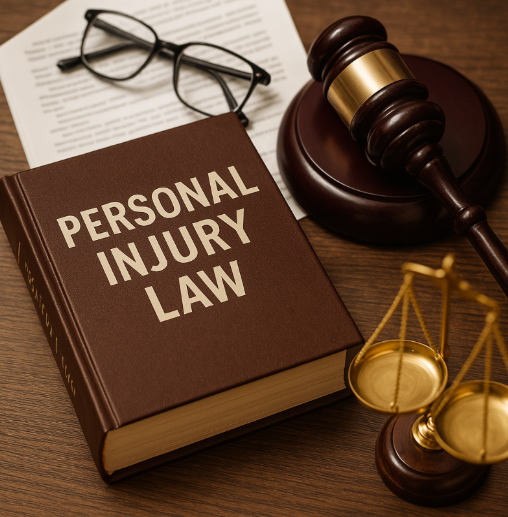Personal injury law is a branch of the legal world that quietly steps in when someone has been hurt—physically, emotionally, or even mentally—due to someone else’s carelessness or intentional actions. At its heart, this area of law is about helping people find their footing again after an accident or injury.
Whether it’s a car crash, a slip and fall, medical negligence, or even an unsafe product that caused harm, personal injury law works as a protective cushion, offering guidance and support during a difficult time. It’s not just about legal rules—it’s about people, pain, recovery, and fairness.
What Personal Injury Law Truly Means
Personal injury law is a special area of the legal system that focuses on helping people who’ve been harmed through no fault of their own. It covers situations where someone’s negligence, carelessness, or even intentional actions lead to another person’s suffering.
The word “injury” doesn’t just refer to physical wounds—it can also mean emotional pain, psychological distress, or loss of quality of life. At its core, this law is a pathway to fairness, designed to support those going through tough times and offer them a way to rebuild.
The Heart of Every Case: Duty, Breach, and Harm
Every personal injury case begins with three gentle questions: Was there a duty to act with care? Was that duty broken? And did someone get hurt because of it? These questions help determine if the injured person is entitled to compensation.
For example, drivers have a duty to follow traffic rules, and doctors are expected to care for their patients properly. When that responsibility is ignored, and it causes harm, the law quietly steps in to make things right.
Common Situations That May Lead to a Claim
While no two experiences are ever exactly the same, there are certain situations that often lead people to seek help under personal injury law. These include traffic accidents, injuries at work, falls in public spaces, harm caused by defective or dangerous products, and even cases where a doctor’s mistake leads to further health problems.
In each of these cases, the law gently steps in to assess what happened and determine whether the injured person deserves support.
Common Types of Personal Injury Cases
Although each story is unique, there are several types of personal injury claims that appear more frequently:
Car and Motorbike Accidents: Whether it’s a minor collision or a serious crash, road accidents are one of the most common reasons people seek legal help.
Slip and Fall Incidents: If someone gets hurt because of a wet floor or unsafe walkway, especially in public or private property, they may have a valid claim.
Medical Mistakes: Sometimes, a trusted medical professional can make an error—like a wrong diagnosis or surgical issue—that causes lasting harm.
Workplace Injuries: Jobs that involve physical labor or risky conditions can result in injuries. In some cases, the injured worker is eligible for both workers’ compensation and a personal injury claim.
Harm from Products: If a defective or unsafe product causes injury, whether it’s a toy, medicine, or household appliance, the manufacturer or seller could be held responsible.
The Role of a Personal Injury Lawyer
A personal injury lawyer acts as a calm and experienced guide during what can be a confusing and emotional time. They help gather evidence, negotiate with insurance companies, and if needed, take the case to court.
But most importantly, a good lawyer listens—they hear the pain behind the injury and work with compassion to seek justice. Choosing a lawyer who understands not just the law, but the person behind the case, makes all the difference.
How Long Do You Have to File a Claim?
There’s something called a “statute of limitations,” which is a legal time limit for filing a personal injury claim. This timeframe varies depending on the country or state, and also the nature of the injury.
Missing this deadline might mean losing the right to pursue compensation—so it’s important to act within the proper time, even if it just begins with a quiet consultation.
Final Thoughts
Personal injury law is not just about rules—it’s about restoring what was lost. It’s about offering support when life becomes difficult and ensuring that those who have suffered aren’t left to carry the burden alone.
Whether you or someone you love is navigating the aftermath of an injury, know that this area of law exists to protect, guide, and bring a sense of fairness back into your life. It’s not about blame—it’s about care, healing, and the quiet pursuit of justice.
Recommended Articles
Comprehensive Guide to a movie about shankar and anna florence amazon quiz
BetVegas365: The Ultimate Guide to Online Betting & Casino Games
Harmonicode Sport: The Future of Athletic Performance & Biomechanics


